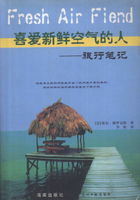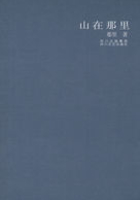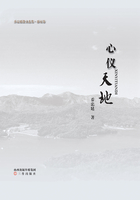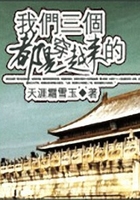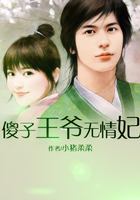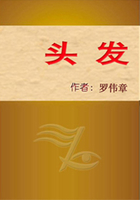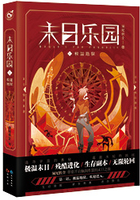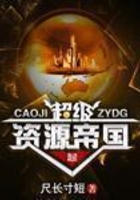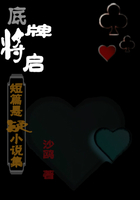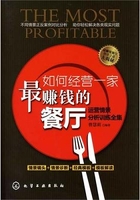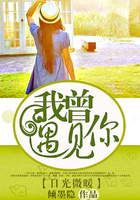Xi Wangmu (西王母) is known as the Queen Mother of the West. She is considered the highest female goddess in fairy and folklore stories, as well as in the Daoist pantheon.
Most scholars assert that the earliest description of the Queen Mother was recorded somewhere between the third and second centuries B.C. in The Book of Mountains and Seas (《山海经》). She was originally portrayed as a humanoid with tiger’s teeth and the tail of a leopard. In later descriptions, she turned into a beautiful goddess of life and immortality.
The Queen Mother is immortal and has celestial powers. She takes charge of all the female celestial beings in and under Heaven. She is seated upon a spiritual western mountain range where her palace is believed to be a perfect and complete paradise. The Queen Mother is always surrounded by a female retinue of prominent goddesses and spiritual attendants. It is said that she holds a pantao (蟠桃) grand party in her palace, and many key celestial beings participate and taste pantao, the peaches of longevity in Chinese mythology.
Ever since the Ming Dynasty, the status of the Queen Mother has remained very high because of her popularity among many believers in folk circles. Many popular local shrines, as well as several Daoist temples, are dedicated to the Queen Mother as a symbol of longevity and eternal bliss.
Notes:1)folklore民俗;2)humanoid人形;3)leopard豹;4)immortality不朽;5)immortal不朽的;6)celestial神仙的;7)retinue随从;9)attendant随从;10)dedicate奉献;11)bliss极乐,天赐的福
5.太岁
Grand Duke of Jupiter
The taisui (太岁) is literally translated as the Grand Duke of Jupiter. In Chinese folk belief, taisui is a ferocious deity, and people imagine that taisui might be an earthly deity whose formation corresponds with the revolution cycle of celestial Jupiter.
In the Chinese lunar calendar, the Ten Heavenly Stems (天干) and the Twelve Earthly Branches (地支) are used to formulate a sixty-year cycle. People believe that within the 60 years there will be 60 heavenly generals, each taking a turn for a period of one-year service that starts in lichun (立春, the beginning of spring) and ends in dahan (大寒, the great cold). Their responsibility is to take care of all matters and distribute fortune or misfortune into the world of mortals. A person’s happiness, health, luck and fortune are all up to these generals who are called the jia-zi deities (甲子神) or the cycle deities. Although each jia-zi deity has his own specific name, people respectively give all the jia-zi deities a unified name:“the taisui deity”to identify the following characteristics.
One proverb says,“One can’t break ground right above the head of a taisui deity (不得在太岁头上动土).”This proverb is similar to the saying“One can’t beard the lion in his den.”People believe that each year’s taisui deity governs taboo practices in ground-breaking and construction, moving from one residence to another, and marriage or burial ceremonies. Violating these may have adverse effects.
People also look upon the specific taisui deity who exercises authority over the whole year. Many Daoist temples or shrines contain a constellation hall (星宿殿) where the images of the 60 jia-zi deities are enshrined. When the new lunar year arrives, people often visit the constellation hall and worship these images by burning incense and providing food offerings. They hope that the taisui deity would bless them, give them a good health, and turn bad luck into good fortune.
Notes:1)duke公爵,君主;2)Jupiter木星;3)ferocious凶猛的;4)correspond with符合;5)revolution旋转;6)formulate制定;7)den兽穴;9)taboo禁忌;10)ground-breaking破土;11)adverse不利的;12)constellation星座;13)enshrine供奉
6.福禄寿
Deities of Fortune (fu), Prosperity (lu), and Longevity (shou)
Fu (福), lu (禄) and shou (寿) are three deities who represent good fortune, prosperity, and longevity. Well-known in Chinese folk belief, they usually appear together as a trinity.
The fu deity is placed on the right of the lu. This deity, known for wealth and happiness, is holding in his arms a scroll, on which a Chinese character“fu (福)”is written. The meaning of the fu character is all-embracing. It denotes people’s bright hopes and goals in their common secular life.
The lu deity appears in traditional garments like an ancient Chinese scholar. He stands at the center, holding in his arms odd-shaped gold or silver ingots. In Chinese folk belief, the lu deity is an auspicious one who takes charge of prosperity, rank, and influence.
The shou deity is placed on the left of the lu. The deity also refers to the“South Pole Old Man Planet (南极老人)”in Chinese astronomy. The ancients believed that this planet possessed celestial powers that could not only affect the life-span of a state, but could also prolong a person’s life. The shou deity appears as an old man with a long full white beard, a friendly smile, and an unusually protruding forehead. He is holding a walking stick or carrying a gourd filled with the Elixir of Life. In addition, he is usually accompanied by a bat, a tortoise, or a stag. All these creatures symbolize immortality.
Notes:1)trinity三位一体;2)all-embracing包括一切的;3)se-cular世俗的;4)ingot锭;5)take charge of掌管;6)astronomy天文学;7)life-span寿命;9)prolong延长;10)protruding突出的;11)elixir仙丹;12)stag雄鹿;13)symbolize象征
7.八仙
The Eight Immortals
The Eight Immortals (八仙) are Chinese deities. Their portraits are seen everywhere — on porcelain vases, teapots, teacups, fans, scrolls and embroidery. Each immortal’s power can be transferred to a tool of power (法器) that can give life or destroy evil.
Traditionally,“eight”is a lucky number, and therefore the“Eight Immortals”are associated with good fortune. In the Ming Dynasty, Wu Yuantai (吴元泰) wrote a book called The Origin of the Eight Immortals and their Trips to the East (《八仙出处东游记》). Hereafter, the legend of the Eight Immortals gradually spread across the country, and their images became popular among Chinese people. Below are some descriptions of each immortal.
Li Tieguai or Iron-crutch Li (铁拐李) is the most ancient of the Eight Immortals. He is depicted as a lame beggar, carrying a crutch. His spirit frequently leaves his body to wander the Earth and Heaven.

